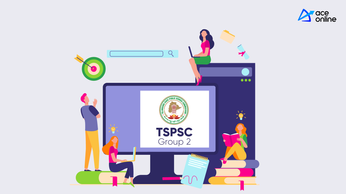
How to Score good marks in Current Affairs on Competitive Exams?
Current Affairs has a special place for any competitive exam. "Success in the competitive exams is easy for candidates who completely understand Current Affairs.
Be smart while preparing for competitive exams. Current Affairs is not a separate subject. The latest topics and changes in various issues are called current affairs. In other words, it is a continuation of all the latest innovations of all topics in all subjects. Current Affairs has a special place for any competitive exam. Success in competitive exams is easy for candidates who completely understand Current Affairs.
Candidates should pay special attention to six main topics in current affairs preparation. Differences between subjects and contemporary subjects should be known. For example, we have studied GSDP in the financial system. When is it asked under current affairs what is the current GSDP? What are the trends? What is the share of which sector in GSDP? What are the differences in those fields? Which sector is progressing? What is going down? What GSDP means is economy. The Constitution of India is a polity. Since Telangana state was formed recently, the formation of the state and all related developments come under Current Affairs.
- Studying the Subject Further: Studying the relevant subject and studying contemporary topics as part of it. Studying only contemporary topics without studying the subject is not useful in the aspect of the current affair.
- Study From Authoritative Sources: Many rely on magazines. There may be mistakes in them too. So, cross-check twice. Study critically and comparatively.
- Contemporary Topics: These topics should be read along with the concept. Apart from that, if you read all the background related to that topic together, you will remember more. Useful for comprehensive understanding. You must read the objective type to maintain the clarity of the subject or the exam. Tor example is the GSLV experiment which is a contemporary topic in science and technology. If you want to remember it and understand its uniqueness, you have to read the entire field of science and technology related to air and space. You should read success stories in it. Only then its back story and everything will be known. Then it becomes easier to write the answer no matter how difficult the question is asked.
- Constantly update yourself with Contemporary Topics: If we ask what is the current growth rate of Telangana state, we will write the current growth rate. But if the exam is postponed for six months, the answer will change. So, update yourself with the latest content from time to time.
- Analyze Contemporary Issues: It should be read while analyzing contemporary issues. Information on how much the inflation rate is. But if we want to read it analytically, what are its trends? Why is it decreasing? All these should be analyzed. A thorough reading of these topics is needed. That is why contemporary topics should be read not fact-based but analysis based. Preparation should be both content and analysis.
- Descriptive to Objective: Prepare descriptively and write answers objectively. But now people are studying objectively. That's not right. Descriptive involves preparation in a logical manner. Also if you prepare objectively then you will not understand what you are reading about. That is why the exam is written objectively, but the preparation should be read descriptively.
We hope these tips will help you score high in the Current Affairs.
Prepare well and set your mind free from stress because hard work alone gives you a cut to it. So, Keep your mind calm and prepare smartly.
For more suggestions and preparation strategies, Follow our blog. ALL THE BEST
ACE Online Newsletter
Join the newsletter to receive the latest updates in your inbox.






